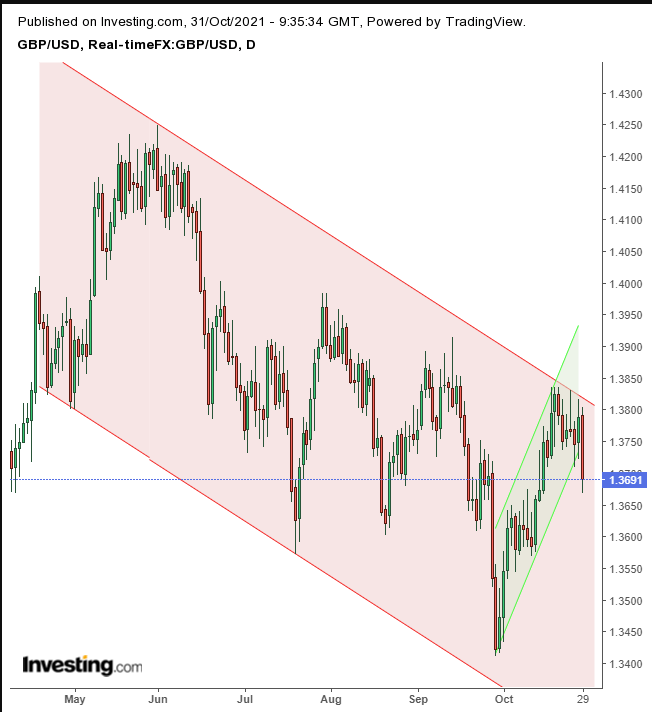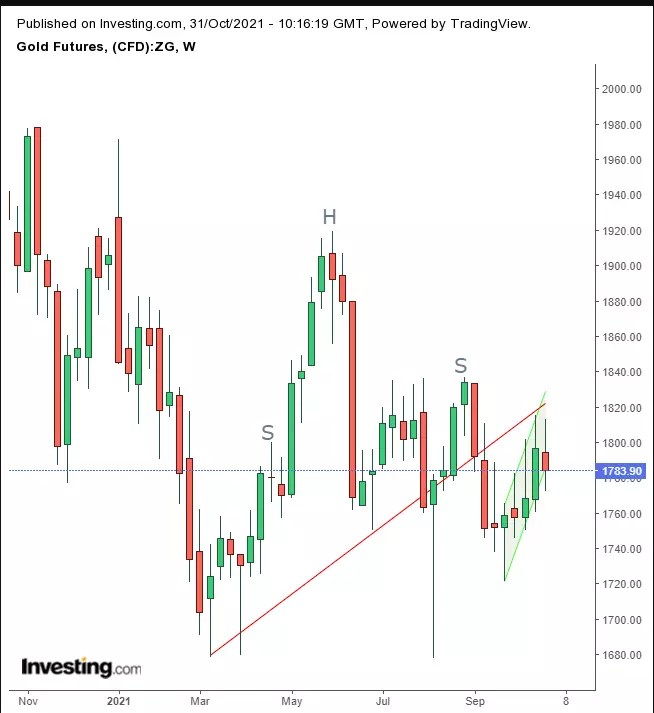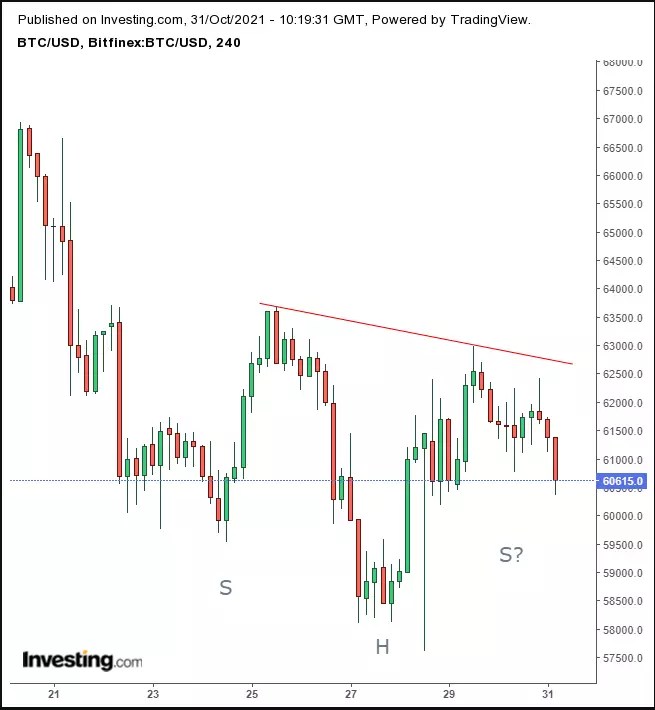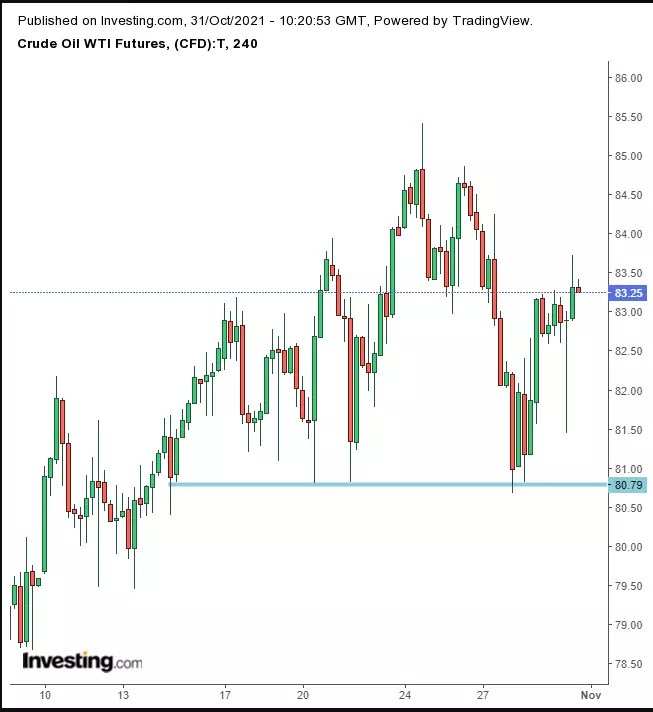Fed expected to taper bond program, BoE members call for rate hikes
Investors push equities to records on Friday, despite risks, underwhelming earnings
As November begins, the Federal Reserve remains a crucial driver of the global and equity market ‘dance.’ The US central bank is hoping that investors won’t overreact in the coming week to its next policy update, which could be both a dramatic and pivotal point for the economy and financial markets.
After nearly two years of aggressively supporting the market as COVID-19 escalated globally, harshly pressuring assets, policymakers are now shifting course, adopting a more neutral posture. The Federal Reserve meets on Tuesday and Wednesday, with the outcome perhaps the most significant event for markets in the upcoming week.
Inflation No Longer Considered Transitory, Tightening On The Way
Expectations are running high for a policy reversal after Fed Chair Jerome Powell finally admitted frustration with persistent rising inflation after insisting for months that escalating costs were ‘transitory.’ Core PCE, the Fed’s go-to inflation measure—as it excludes volatile food and energy prices—surged 3.6% in September on an annual basis for the fourth straight month.
Speculation now has it that the Fed will finally declare its intention to begin trimming its $120 billion-a-month bond-buying program with which the central bank has kept the US economy highly lubricated. Additional global central banks will be meeting this week as well, including Norway’s Norge Bank which raised rates in September and is expected to hike again in December, and the Reserve Bank of Australia.
The Bank of England meets on Thursday. The BoE seems to be among the global central banks leading policy on the path to normalization. External member Michael Saunders and Governor Andrew Bailey strongly favor a rate hike to quell inflation which is seemingly getting out of hand.
Nevertheless, ahead of the weekend the pound sterling dropped 0.75% on dollar strength as Treasuries rose.
 GBPUSD Daily
GBPUSD Daily
Cable fell out of its short-term rising channel amid a dollar advance, wiping out two weeks of gains as it resumes along its falling channel since the June peak.
The Fed’s initial view on the temporary nature of spiking prices was rooted in supply and demand matrix conditions. As the central bank originally saw it, supplies were short only because of a technicality—the bottlenecking of goods at distribution points in the aftermath of the pandemic, possibly the worst disruption since WWII. Once the movement of goods clears up, the Fed argued, prices would fall back down. But so far, that hasn’t happened.
The global chip shortage could also be a significant market catalyst this week. A number of semiconductor companies including Rambus (NASDAQ:RMBS), ON Semiconductor (NASDAQ:ON) and NXP (NASDAQ:NXPI) report on Monday and each will likely provide additional insight into the ongoing supply crunch and its possible duration.
Notwithstanding the presumption that fiscal stimulus will finally be trimmed, as well as underwhelming corporate results from Amazon (NASDAQ:AMZN) and Apple (NASDAQ:AAPL) on Thursday, US stocks rose on Friday with three of the four major indices—the S&P 500, Dow Jones and NASDAQ Composite—all closing at new records. As well, the S&P gained 6.9% in October, its most significant monthly increase since last November.
Investors have been bidding up stocks due to earnings beats irrespective of additional, myriad risks. However, now it seems, even a miss by marquee mega cap names can’t get in the way of investor exuberance, fundamental justifications be damned. We consider that sort of behavior a significant red flag.
Still, whether the escalation was justified or not, the S&P 500 Index blew out an Evening Star, as well as our Thursday trade.
The dollar rose for the week along with Treasuries, including the 10-year benchmark.
 Dollar Weekly
Dollar Weekly
The greenback bounced off the bottom of the rising channel that meets with the neckline of a massive double bottom.
Gold continued to struggle below the $1800 level.
 Gold Weekly
Gold Weekly
The precious metal’s rising short-term trend continues to find resistance against the long-term, weekly H&S continuation pattern.
Bitcoin continued to range trade.
 BTC/USD 4-Hour Chart
BTC/USD 4-Hour Chart
However, on the 4-hour chart, the cryptocurrency may be developing a H&S bottom.
Oil gained on Friday for the second day.
 WTI Daily
WTI Daily
Nonetheless, on the 4-hour chart, it appears to be forming a H&S bottom.
Bookending the upcoming trading week, on Friday the US prints perhaps its most anticipated monthly economic release, Nonfarm Payrolls data for October, which recently has proven challenging for markets.
Week Ahead
All times listed are EDT
Sunday
21:45: China – Caixin Manufacturing PMI: predicted to remain flat at 50.0.
Monday
5:30: UK – Manufacturing PMI: expected to remain steady at 57.7.
11:00: US – ISM Manufacturing PMI: seen to edge down to 60.5 from 60.1.
19:50: Japan – BoJ Monetary Policy Statement
23:30: Australia – RBA Interest Rate Decision: forecast to hold rates at 0.10%.
Tuesday
4:55: Germany – Manufacturing PMI: expected to continue flat at 58.2.
Wednesday
5:30: UK – Services PMI: to remain at 58.0.
8:15: US – ADP Nonfarm Employment Change: predicted to plunge to 400K from 568K.
10:30: US – Crude Oil Inventories: showed a build of 4.267M barrels last week.
11:00: US – ISM Non-Manufacturing PMI: seen to rise to 62.1 from 61.9.
14:00: US – Fed Interest Rate Decision
Thursday
5:30: UK – Construction PMI: probably climbed to 54.0 from 52.6.
8:00: UK – BoE Interest Rate Decision: predicted to keep rates at 0.10%.
8:30: US – Initial Jobless Claims: expected to drop to 275K from 281K.
Friday
8:30: US – Nonfarm Payrolls: forecast to surge to 413K from 194K.
8:30; US – Unemployment Rate: seen to tick down to 4.7% from 4.8%.
8:30: Canada – Employment Change: anticipated to plummet to 50.0K from 157.1K.
10:00: Canada – Ivey PMI: September’s print came in at 70.4.
Source: Investing.com





























